Archaeology
-
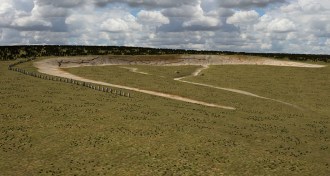 Archaeology
Archaeology‘Superhenge’ once lined Stonehenge neighborhood
A row of massive, now-buried stones once bordered a site near Stonehenge.
By Bruce Bower -
 Anthropology
AnthropologyAncient pottery maps route to South Pacific
New Guinea pottery points to a key meeting of island natives and seafarers at least 3,000 years ago.
By Bruce Bower -
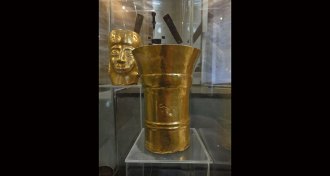 Anthropology
AnthropologyChilean desert cemetery tells tale of ancient trade specialists
Burial site holds clues to ancient trade brokers in Chilean desert.
By Bruce Bower -
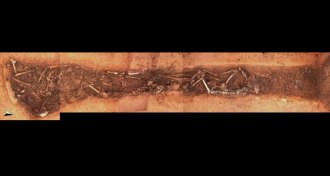 Anthropology
AnthropologyBones revive a 7,000-year-old massacre
Bones suggest Central Europe’s first farmers had an extremely violent streak.
By Bruce Bower -
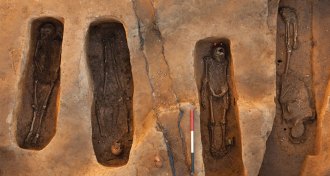 Anthropology
AnthropologyRemains of Jamestown leaders discovered
Colonial-era graves reveal leading figures in founding of English America.
By Bruce Bower -
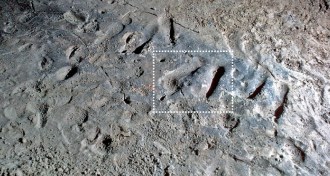 Anthropology
AnthropologyModern-day trackers reinterpret Stone Age cave footprints
African trackers help researchers interpret ancient human footprints in French caves.
By Bruce Bower -
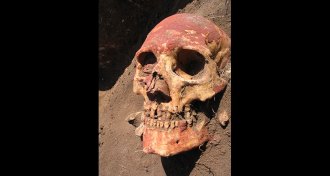 Archaeology
ArchaeologyBronze Age humans racked up travel miles
A new study indicates long journeys and unexpected genetic links in Bronze Age Eurasian cultures.
-
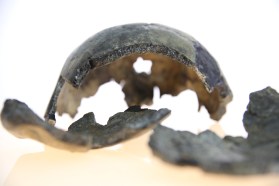 Humans
HumansHow Homo sapiens became world’s dominant species
'First Peoples' dispels old ideas about human evolution and tells an updated tale of how Homo sapiens came to dominate the world.
By Erin Wayman -
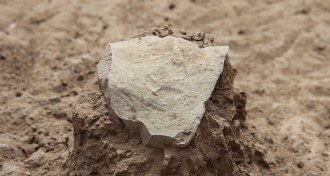 Archaeology
ArchaeologyEarliest known stone tools unearthed in Kenya
East African discoveries suggest stone-tool making started at least 3.3 million years ago.
By Bruce Bower -
 Astronomy
AstronomyWandering planets, the smell of rain and more reader feedback
Readers consider how hard it would be to fashion Paleolithic tools, discuss what to call free-floating worlds and more.
-
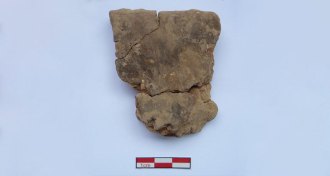 Anthropology
AnthropologyPots from hunter-gatherer site in China tell tale of lifestyle shift
Chinese foragers settled down and made pottery shortly before farming’s ascent.
By Bruce Bower -
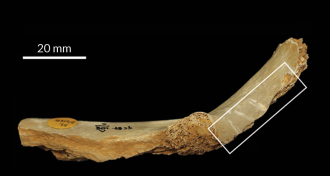 Anthropology
AnthropologyRitual cannibalism occurred in England 14,700 years ago
Human bones show signs of ritual cannibalism in England 14,700 years ago.
By Bruce Bower